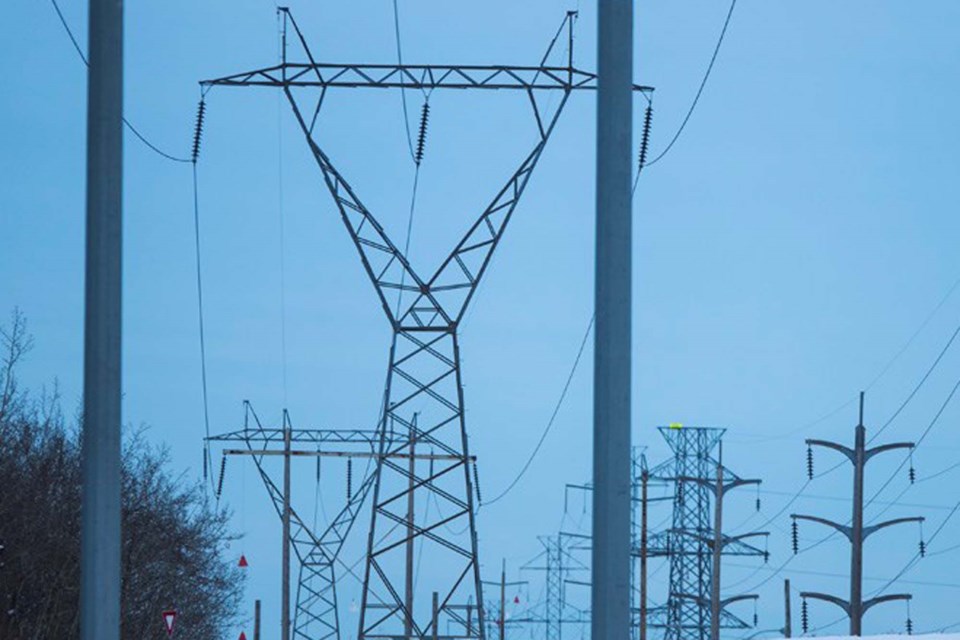Residents could pay more in property taxes instead of utility bills next year if an increase to St. Albert’s user fee for electricity is put on pause until 2022.
St. Albert city council introduced the electrical franchise fee in 2018 to help offset property taxes, increasing by 2.5 per cent every year until it reaches 10 per cent.
On Jan. 1, the fee was expected rise to 10 per cent from 7.5 per cent, an increase equivalent to offsetting a 0.7-per-cent tax hike, according to a city background report. The fee increase planned for 2021 is expected to generate $768,000 in revenues.
An electrical franchise fee is what the city charges its utility provider, Fortis Alberta, for access to city land where utility infrastructure is built. The utility provider then passes that fee along to its customers on their monthly utility bills. It casts a wider net than taxes, since organizations exempt from property taxes like schools and churches still have to pay for utilities.
The more energy used, the more the user pays. The idea behind this fee was to find another way for the city to generate revenue without increasing property taxes.
Coun. Sheena Hughes put forward a budget motion to freeze the fee until 2022. While fee revenues are used to offset property taxes, Hughes said it's still money paid for by residents, community groups and businesses each month and should be considered as part of budget discussions.
The draft budget that was presented to council last month outlined a 1.1-per-cent tax increase, which councillors can bring down or increase depending on what changes they make to the budget.
“The 1.1-per-cent tax increase does not include the cost coming out of people's households with an increased electrical franchise fee. So it looks better than it really is,” Hughes told the Gazette in a previous interview.
Larger businesses, schools and non-profits use more electricity than the average household to keep operations going, meaning an increase will hit them harder next year, especially amid the COVID-19 pandemic, she said.
“With businesses struggling this year and next year, additional hits on the electrical franchise fee could be a serious concern,” she said.
Twenty-six per cent of Alberta's business operators identified municipal franchise fees as a major cost barrier amid the pandemic, according to a recent Alberta Chambers of Commerce survey.
Jennifer McCurdy, president and CEO of St. Albert and District Chamber of Commerce, said the fee increase would present another challenge for local businesses.
"Our Board of Directors believe that any increase in costs at this time is of concern given the impact of COVID-19 on our business community," McCurdy wrote in an email to the Gazette.
Clint Moroziuk, superintendent for Greater St. Albert Catholic Schools, said the school board would be in favour of Hughes' motion.
The district is facing "significant" unforeseen costs due to the pandemic, and any efforts to halt a fee increase would be "very much appreciated." He estimated the increase to 10 per cent would cost the school board around $36,000 a year.
"Any dollars that can be put to the classroom directly, either in terms of personnel or material supports and resources, is appreciated," Moroziuk said. "Every little bit certainly contributes and allows us to direct dollars to higher priority areas at this time."
In an interview with the Gazette in October, prior to Hughes' motion being filed, St. Albert Mayor Cathy Heron said the fee was about keeping taxes low. She stressed the fee should not be considered a tax, but a user fee.
"A typical residence will see an overall decrease in their costs. Their tax bill will go down more and they will save money in the end," Heron said. "That's why I like these types of revenue generations, because they're consumption-based. The more you use, the more you pay for what you use."
When asked about the potential impact the increase would have on businesses during the pandemic, Heron said council hasn't been blind to those challenges. In May, city councillors voted for a zero-per-cent tax increase for businesses. Now, it's about levelling the playing field.
"Historically, the smaller uses of electricity, whether it be a resident or a small business, has been subsidizing the big heavy electrical users. And that's not fair," she said. Larger power users could scale back on wattage through energy efficiency as well, she added.
"It does try to let those heavy users think of alternate ways to do their business, whether it be more efficient machinery, solar panels or generating electricity on a green scale. Some thought process is required instead of just always turning on the switch."
St. Albert city council was set to debate the postponed budget motions on Dec. 1 at 2 p.m., after press deadline.




